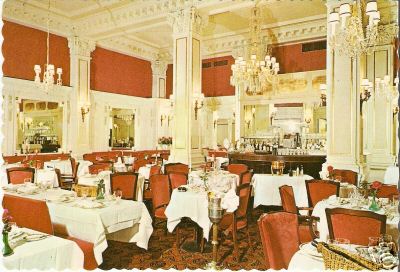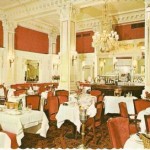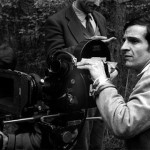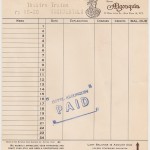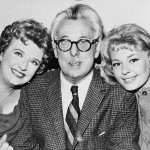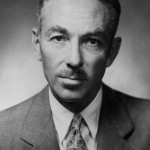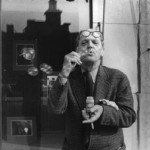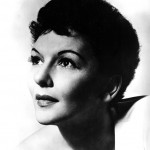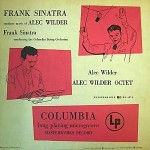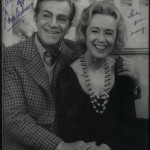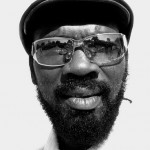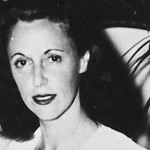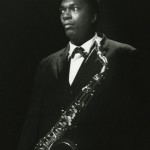by Michael Elihu Colby
Part 11: Learning the Ropes
Despite my theatre aspirations, my family repeatedly reminded me, “There’s more security in the hotel business!!” For several summers, my brother Douglas and I gave it a try. Starting when I was about 15, Douglas and I would either be driven to the hotel by my father (on his way to work there) or just stay over at my grandparents’ 10th floor suite at the Algonquin. Then, we spent weekdays learning the ropes in various jobs.
Sorting files and bills in the reservations office might have seemed routine under ordinary circumstances; but not when you’re helping to make arrangements for Jason Robards and Colleen Dewhurst, or Jeanne Moreau, Jean-Luc Godard, and François Truffaut. I learned more about French films through my summer job than by going to the movies. A special list of incoming VIPs could be found on a pad kept by hotel’s head secretary, Irene McCarthy. Even when I wasn’t working in this second floor office, I’d often climb the stairs to sneak a peak at the list.
Douglas and I also did stints as switchboard operators, alongside the hotel’s professional operators. Connecting a forest of wires in and out of jacks, we plugged through the week as if in a scene from The Bells Are Ringing. Alas, those switchboards have now gone the way of the spinning wheel, the butter churn, and the carrier pigeon.
The most enjoyable job was working as a clerk behind the front desk. Grandma Mary took me to Brooks Brothers to find just the right suit to wear. In what must have seemed like a Little Rascals remake of Grand Hotel, I’d station myself behind the check-in desk and assist the head clerk. It may well have seemed surrealistic for guests to enter this historic hotel, then be greeted by a distinguished desk clerk flanked by a baby-faced 15-year old in a navy blue suit—the two of us resembling a ventriloquist and his puppet. I remember, Grandma often sat nearby, while I worked at the front desk: I guess, sometimes to warn guests, sometimes to kvell about her well groomed prodigy. Regular guests mostly smiled, knowing who I was, and others took it in stride. At least, I don’t recall anyone carping about whether they were in Manhattan or Boys Town. I myself certainly benefited from this learning experience—and a small weekly stipend. Plus, I got better acquainted with some of the hotel’s remarkable guests.
Even after James Thurber passed away, the Algonquin continued to be “A Thurber Carnival” (to borrow the title of the 1960 Broadway revue in which Thurber played himself and for which he won a special Tony Award). Thurber’s framed cartoons could be seen in the hallways from floor to floor; and his widow Helen still lived at the hotel. She was one of the most gracious regulars there. Daily, I would hand out her mail, which she received with what seemed like the same cordiality she would show an adult. Everyone at the Algonquin adored her. She had been nicknamed “Mr. Thurber’s Seeing-Eye Wife” since—after he lost his sight—she oversaw his writings and drawings.1 Later I read how she also reversed her husband’s shrewish image of women, once patterned on Thurber’s abrasive first wife Althea. Ironically, reporter Dannye Romine described how Helen’s sunniness spurred some heat from the editor at The New Yorker.
Thurber’s plans to marry Helen a month after his divorce from Althea made editor [Harold] Ross edgy. He feared Thurber’s nagging-wife characters would disappear if Thurber happily remarried. The thrice-married Ross dispatched humorist Robert Benchley to try, unsuccessfully, to dissuade Thurber. Thurber’s shrews did, in fact, dwindle over the years. The couples in his later stories evidence a more equal balance.2
Behind the desk, I likewise encountered a longtime friend of Thurber’s, author E.B. White. The two men even wrote an unlikely book together, Is Sex Necessary? (When Helen Thurber first met James, this book had just been published and Helen grabbed his attention with her introductory comment, “Well, Mr. Thurber, is sex necessary?”3).
As for E.B. White, he was an extremely shy man, who disliked publicity and feared public appearances.4 He was most famous for his bestiary children’s books, Charlotte’s Web and Stuart Little—neither obviously inspired by his stays at the Algonquin. One could argue that—when construction was underway in the neighborhood—White may have spotted a mouse or two, resembling Stuart Little. Still, White found most of his inspiration from the animals at his permanent home, a farm in Maine. He cited, “I had been watching a big grey spider at her work and was impressed by how clever she was at weaving. Gradually I worked the spider into the story that you know [Charlotte’s Web].” 4
E.B. White was especially fond of the mattresses at the Algonquin—calling them the most comfortable and sleep-inducing he’d ever experienced. My uncle Andrew Anspach, the hotel’s co-manager, sent a hotel mattress directly to White’s farm, for which White couldn’t have been more grateful. With his shyness and delight in sleep-inducing mattresses, it’s no wonder that White co-wrote Is Sex Necessary?.
During the time I distributed guest mail into slots at the front desk, it was easy to become confused when the name “Wilder” appeared: film director Billy Wilder, playwright Thornton Wilder, and composer Alec Wilder all stayed there. Alec Wilder lived at the hotel for 40 years until his death in 1980. As a child, he visited there with his mother.5 As soon as he was old enough, he moved in—between trips around the world. Wilder treated my family like, well, family—always happy to talk. A tall, slim figure, he had a professorial air with grizzled hair and his slightly rumpled tie and jacket. He was a mostly self-taught composer. His music ranged from classical to jazz. His songs, including the standards “While We’re Young” (lyric: William Engvick) and “I’ll Be Around” (lyric: Wilder himself), were recorded by such artists as Frank Sinatra, Peggy Lee, and Tony Bennett. 7 Back in 1949 and 1950, he also hosted a weekly Sunday event at the Algonquin’s Stratford Suite (the elegant meeting room on the 3rd floor), where singers performed to orchestral tracks of his music.
Before we knew it, these Sunday evenings had become a fashionable event to attend. All manner of prominent theatrical and literary people came. I recall that one Sunday evening Leonard Bernstein and Marc Blitzstein volunteered to help us get the right balance between the orchestra recording and the “live” voice of the leading singer. I don’t think Nancy Walker missed one of those Sunday evenings. Once we held the “curtain” for the arrival of Mary Martin. One evening I happened to look up from my hot seat at the piano to see William Faulkner sitting in the first row of chairs.6
I’d often see Alec Wilder in the lobby, doing such fascinating things as writing out music charts for Sinatra. I’m told he read a book a day. He himself wrote a definitive book on music, American Popular Song: The Great Innovators, 1900-1950—the basis for an acclaimed National Public Radio series he hosted during the 1970s. He was a paradox of erudite sophistication and impish humor who loved conversing with children, eased through the London Times crossword puzzle in ink, and was known to blow bubbles even at formal dinners. 7 Singer Marian McPartland has cited how he never minced words. According to McPartland, he so disliked Peggy Lee’s recording of “While We’re Young”, he told Lee “The next time you come to the bridge [of the song], jump off!” 8
Also visiting the hotel was a veteran movie star who arrived with a surplus of suitcases. Dana Andrews—who gave unforgettable performances in movies like Laura and The Best Years of Our Lives—was very close to my family, as was his wife Mary (Grandma Mary seemed to love guests who shared her name). Bellman Tony Cichielo declared “If the man had fifteen pieces [of luggage], it was nothing.” 9
Dana Andrews may have had an excess of luggage, but he had a minimal ego. He attributed his first big break to luck: “I had just made my first movie. They put up a huge sign. “The Westerner,” it said, “Starring Gary Cooper and Dana Andrews.” I had exactly four lines in the picture. Nobody had ever heard of me. But the publicity department had done that for all the billboards. They thought Dana was a girl’s name, and I was the girl in the picture, and that it looked more exciting to have Cooper and a girl. … If I’d used my first name, ‘Carver,’ ” [He was born Carver Dana Andrews] maybe I’d never have made it. 10
On several occasions, Dana Andrews spiced up lunches with my family, sharing stories of old Hollywood, with little asides about everything from director Otto Preminger’s voice of terror to actress Joan Bennett’s battle of the bulge. Little did I know that, decades later, I personally would be responsible for the actor’s starring at the Berkshire Theater Festival in Stockbridge, MA. As a consultant there, I arranged for his being cast in “William Inge’s Come Back, Little Sheba. He was simply magnificent, especially poignant because, being a reformed alcoholic who’d become a vital spokesman for AAA, Andrews gave haunting resonance to the role of “Doc Delaney,” a character whose drinking problem devastates his marriage.
In addition to my other jobs at the Algonquin, I spent a few days helping out in the housekeeping department, which took up the entire thirteenth floor. Set apart from the rest of the hotel, the department could only be reached by a single stairway or service elevator. The floor was full of washing machines and linen presses, as the chief housekeeper coordinated maid service via walkie-talkies. Every now and then, something unexpected would be reported. For example, there was one ordeal faced by a maid that was right out of a creature feature. Entering a room to make up the bed, she found a large box from which issued horrible hissing sounds. Like Pandora about to release the evils of the world, the maid daringly pulled open the lid of the box. Out crawled an invasion of slimy, slithering snakes making the maid back away screaming. Turns out the guest was a collector of reptiles who smuggled more than a few of his friends into his room. Stumbling backward, the maid tipped over another box from which rose leaping lizards. Running to take refuge in the bathroom, she received the biggest shock of all: within the tub gazed an open-mouthed alligator. Fortunately, she escaped before becoming room service lunch—as other employees rushed to her rescue. But the guest was sent packing. Except for the Algonquin Cat, the Algonquin had a fairly strict “no pets” policy—certainly no zookeepers & Co.
The 13th floor also held a short stairway leading up to the hotel roof. It was on the roof that a jazz legend almost hit his final note. From the late 1950s on, Theolonious Monk was hailed as one of the most innovative jazz pianists. A popularizer of bebop, he is the second most recorded jazz composer after Duke Ellington.11 However, he had a history of difficulties and erratic behavior. He was largely subsidized through the patronage of an Algonquin habitué—and Rothschild descendant—Baroness Pannonica de Koenigswarter. He spent many hours in her Algonquin suite, rehearsing, composing, and hanging out with such other jazz greats as saxophonists, Sonny Rollins and John Coltrane.12 Monk apparently wandered around the hotel as well. Somehow, one day, he found his way to the roof. Fortunately, he was closely followed by Bell Captain Tony Cichielo. According to Cichelo, he stopped Monk from leaping off the roof: “Monk had one foot off the top. I grabbed him by the shoulder. I said, ‘Where are you going, Mr. Monk?’” 13
It remains a mystery why the unpredictable Monk was up on the roof. But, it’s fortunate Cichelo checked in on him or Monk might have joined Preston Sturges, James Thurber and a few others who checked out, permanently, at the Algonquin.
My Algonquin apprenticeship concluded with several weeks of working in the food steward’s department. This department was located in a part of the Algonquin that few saw, the hotel’s “underworld:” the basement and subbasement. To do this, the good news was I absolutely had to stay in my grandparent’s apartment so I could rise at 5:30 AM each weekday. The bad news was I had to rise at 5:30 AM. By 6:00 AM, I ventured down to the steward’s basement office. It was stocked with shelves of foods, alongside small freezers and a big closet-size one. Through the day, I helped the steward unload supplies, phone around for the best food prices, and prepare fruit baskets for guests—skills for which Woodmere Academy never prepared me. Often, when I stepped into the big freezer, I thought of the movie Hell’s Kitchen, in which Dead End Kid Bobby Jordan was trapped in one such ice box and froze to death. Luckily, Grandma Mary regularly phoned in, so I knew the steward would never let anything like that happen to me.
Down the foyer were other freezers and meat lockers full of ever kind of edible. One flight below was the liquor and wine sub-cellar. This wasn’t typical Algonquin glamour. Instead of Mary Quant models and famous songbirds, I was looking at hanging beef and barrels of fish. But I was rolling up my sleeves and working hard.
It was my father’s idea to put me in the steward’s office. He rightly posited that, if I were to go into the hotel business, I should learn all departments from top (housekeeping) to bottom (wine cellar). Nonetheless, my grandparents (especially Grandma Mary) disliked the idea of my being out-of-sight, at menial labor like lifting heavy boxes. I didn’t mind at all. In my pampered Algonquin mode, it was the only solid exercise I could get. But that led to more clashes between my father and my grandparents. Those clashes reverberated throughout the family. After all the effort to indoctrinate me, my summer ended with reasons NOT to want to go into the hotel business.
Next part: This Doesn’t Happen at the Holiday Inn
1 “Helen Thurber Obituary” in The New York Times. December 26, 1986.
2 Romine, Dannye. “Wife Not a ‘Thurber Woman’” in Lakeland Ledger (Lakeland, FL). August 17, 1980.
3 “Helen Thurber Obituary” in The Hour (Norwalk, CT), December 24, 1986.
4 “Biography: E. B. White.” Scholastic Inc.: http://www.scholastic.com/teachers/contributor/e-b-white#top. 2013.
5 Schuller, Gunther, McGlohan, Loonis, & Levy, Robert (supplied by Ron Prather). Biography of Alec (Alexander) Wilder in Classical Net™: The Internet’s Premier Classical Music Source. 2014: http://www.classical.net/music/comp.lst/acc/wilder.php
6 Lambert, Philip. Alec Wilder. Champaign, IL: University of Illinois Press, 2013.
7 Notes for the album “Alec Wilder: Music for Winds and Brass” (TROY763), Albany Records (Albany, NY). 20014: http://www.albanyrecords.com/mm5/merchant.mvc?Screen=PROD&Store_Code=AR&Product_Code=TROY763&Category_Code=a-Orch
8 “About ‘While We’re Young’’“ on “The Interactive Tony Bennett Discography: a project from The Year of Tony Bennett”: http://discography.bloggingtonybennett.com/composer/alec-wilder/
9 Uncredited. “Bellhop” from “Talk of the Town” in The New Yorker, September 20, 1993.
10 Cleveland Amory. “Dana Andrews was Lucky” in Spokane Daily Chronicle (Spokane, WA).
December 8,1976.
11 DeVeaux, Scott & Giddins. Jazz. New York: W.W. Norton & Company, January 30, 2009.
12 Kelley, Robin D.G. “Biography of Theolonious Sphere Monk” from The Monk Zone: http://www.monkzone.com/silent/biographyHTML.htm.
13 Uncredited. “Bellhop” from “Talk of the Town” in The New Yorker, September 20, 1993.
© 2014, Michael Colby
*No copyright Infringement Intended. For Entertainment Purposes Only.
Click Below for Parts 1 thru 10 :
https://www.theaterpizzazz.com/algonquin-kid-part-way-back/
https://www.theaterpizzazz.com/algonquin-kid-part-2-algonquin-renaissance/
https://www.theaterpizzazz.com/algonquin-kid-part-3-series/
https://www.theaterpizzazz.com/algonquin-kid-part-4-series/
https://www.theaterpizzazz.com/algonquin-kid-part-5-series/
https://www.theaterpizzazz.com/algonquin-kid-part-6-series/
https://www.theaterpizzazz.com/algonquin-kid-part-7-mazel-tov-robert-f-kennedy/
https://www.theaterpizzazz.com/algonquin-kid-continues-part-8-series/
https://www.theaterpizzazz.com/algonquin-kid-part-9-british-staying/
https://www.theaterpizzazz.com/algonquin-kid-musicals-r-us-part-10/


